
- Home
- Author
- A. A. Petrov (9)
- Abhay Ashtekar (4)
- Albert Einstein (43)
- David Bohm (8)
- Herbert E. Ives (3)
- John Stachel (4)
- Joshua Foer (7)
- Julie Aigner-clark (18)
- Kuznetsov, B. G (5)
- Lincoln Barnett (3)
- Motz And Weaver (6)
- Petr Beckmann (11)
- Pi Kids (4)
- Ronald R. Hatch (9)
- Sebastian Zeidler (4)
- Unknown (5)
- W. Israel (5)
- Walt Disney Company (3)
- Walter Isaacson (5)
- William Lane Craig (4)
- Other (2128)
- Book Title
- Brand
- Aesculap (9)
- American Vintage (10)
- Andazia (13)
- Apple (30)
- Baby Einstein (43)
- Disney (106)
- Einstein (31)
- Fruit Of The Loom (19)
- Hanes (11)
- Hot Toys (16)
- Hugo Boss (176)
- Levi's (30)
- Mattel (10)
- No Brand (104)
- Paul C. Buff (109)
- Royal Doulton (15)
- Sacai (50)
- Steinbach (10)
- Takara (16)
- Vintage (41)
- Other (1439)
- Isbn
- 0091066603 (5)
- 1423159853 (3)
- 9780080123158 (10)
- 9780199230723 (4)
- 9780201094480 (8)
- 9780307881601 (7)
- 9780415701747 (4)
- 9780521222853 (5)
- 9780786447732 (4)
- 9780786819126 (3)
- 9780911762396 (11)
- 9780963211309 (9)
- 9780971962989 (4)
- 9781138056688 (3)
- 9781412745178 (3)
- 9781423114529 (6)
- 9781423114567 (3)
- 9781501702082 (4)
- 9781892309808 (3)
- 9789812563941 (4)
- Other (2185)
- Isbn-10
- 0080123155 (10)
- 0091066603 (6)
- 0199230722 (3)
- 0415701740 (4)
- 0439963249 (2)
- 0521222850 (3)
- 0786447737 (3)
- 0792309502 (3)
- 0815958234 (3)
- 0911762396 (3)
- 0971962960 (3)
- 1107017440 (3)
- 1454907762 (3)
- 1501702084 (4)
- 3540257799 (2)
- 3540712925 (2)
- 3662308517 (2)
- 9380283024 (2)
- 9812563946 (3)
- 9814660566 (2)
- Other (2222)
- Language
-andy Warhola- Albert Einstein -88/100- (leo Castelli, New York)
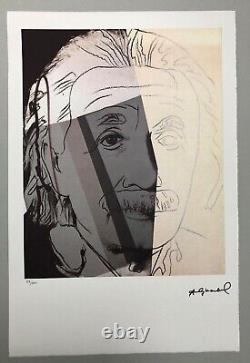
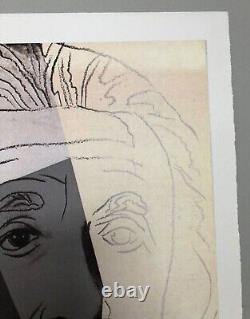
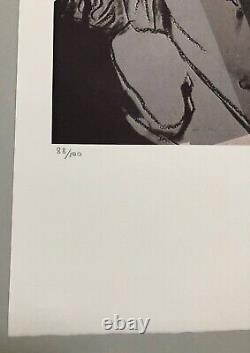
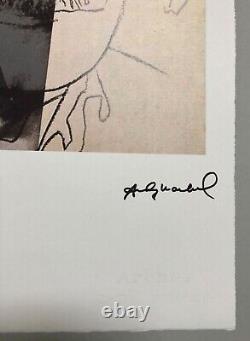
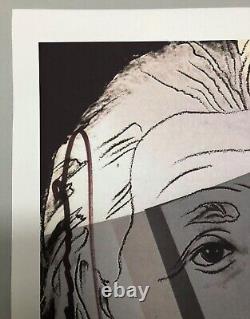
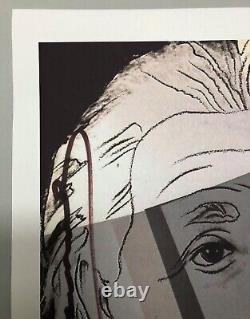



ANDY WARHOLA-- ALBERT EINSTEIN --88/100-- (LEO CASTELLI, NEW YORK). LEO CASTELLI ART GALLERY, NEW YORK STAMPS ON BACKSIDE.
SIZE: 22.04 14.96 INCH. "IMPORTANT; SEE THE NEW ART FROM ME WITH THE NAME --"TO BIG TO FAIL -THE RIGHT TIME TO FALL- AGAINST CORRUPTION AND COMMUNISM--OR EYES OF THE DAMNED--S. Krausz ; September 4, 1907 - August 21, 1999 was an Italian-American art dealer. Who originated the contemporary art gallery.
His gallery showcased contemporary art. Among the movements which Castelli showed were Surrealism. Leo Castelli was born Leo Krausz.
The second of three children of Italian and Austro-Hungarian Jewish origin. His father was Ernest Krauss, a Hungarian by birth, who had gone to Trieste as a young man and married wealthy heiress Bianca Castelli. From a family of coffee importers. Which had long been based there. The family changed its name to "Krausz-Castelli" and then "Castelli" in the mid-1930s, when Benito Mussolini.
S government required names to be Italianized. After earning a law degree at the University of Milan.After their marriage, the couple honeymooned in Vienna and bought their first artwork, a Matisse. Castelli's father-in-law, Mihai Schapira, helped him to be transferred in 1935 to the Banca d'Italia. In Paris, which was named for its co-director, the decorator René Drouin. And situated between the Ritz Hotel.
And the couturier Elsa Schiaparelli. The gallery opened in July 1939, with a show of modern and antique furniture, including commissioned pieces by Drouin, Max Ernst. (a former girlfriend of Castelli's from Trieste), Eugene Berman.
And other artists in the force field of Surrealism. Ileana's connections enabled the couple to flee to the United States at the start of World War II.
Castelli's parents did not escape but died in Budapest. Hounded by members of Hungary's fascist Arrow Cross Party. The couple would remain married for more than 25 years, and were friends and partners even after their divorce, when Ileana married Michael Sonnabend and that couple opened its own gallery. Castelli arrived in the United States in 1941, by way of Marrakesh, Tangier, Algeciras, Vigo and Havana.
He took graduate history courses in economic history. Until volunteering for the Army, serving in the intelligence service in Europe. After the liberation of France, he was sent to Bucharest as an interpreter for the Allied commission that controlled the city. As a result of Castelli's military service, he was given American citizenship. Returning to New York, Castelli took a managerial position with his father-in-law's clothing factory.

